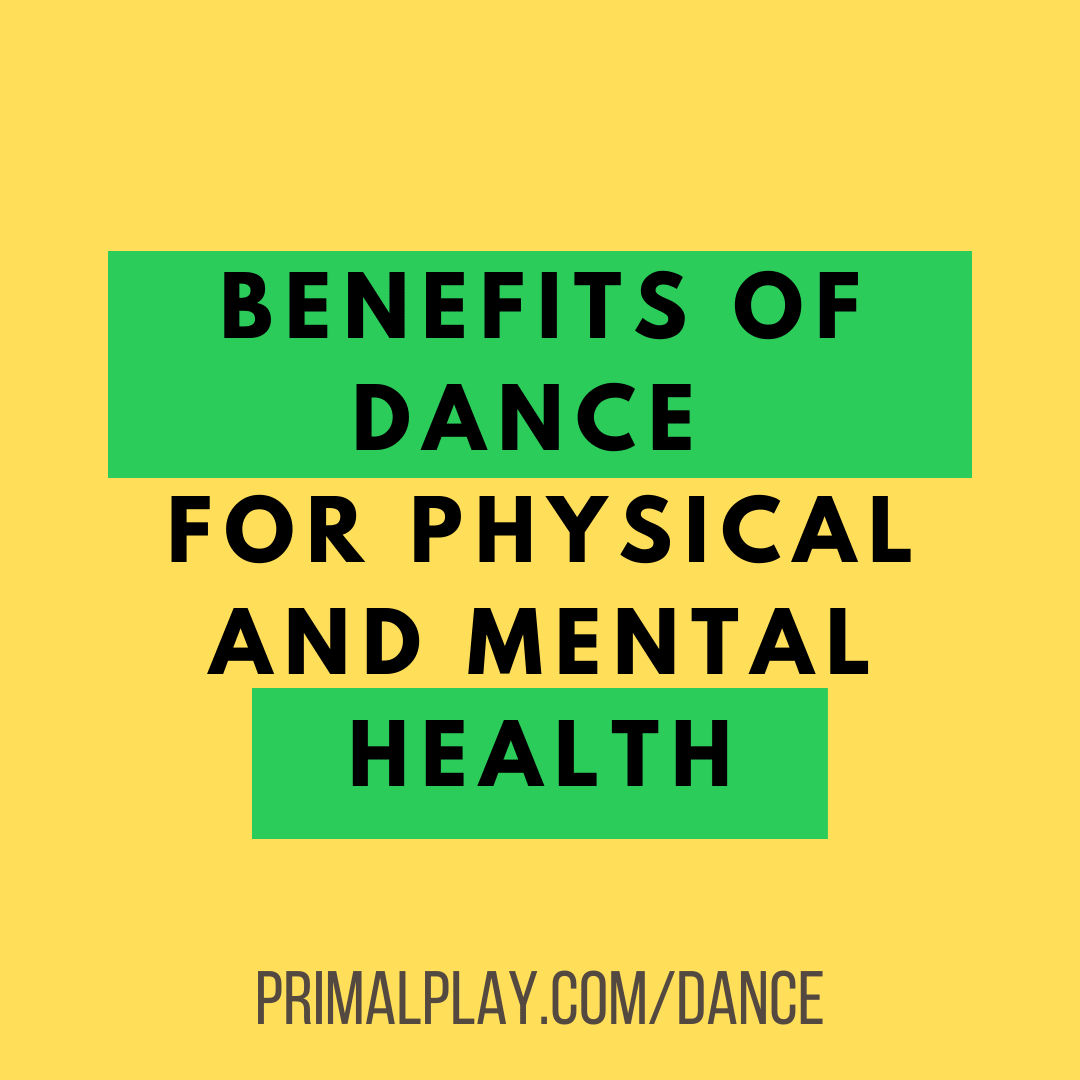Benefits of Dance For Health
““Every day brings a chance for you to draw in a breath, kick off your shoes, and dance.”
”
Benefits of Dancing For Your Mental And Physical Health
Benefits of Dance for Health
If you've ever watched "Strictly Come Dancing", "Dancing With The Stars" or any of the other TV dance shows and thought that you were too uncoordinated to dance and would rather watch instead? You maybe passing up an excellent opportunity to obtain some fantastic physical and mental health benefits.
I decided that in 2020 I was going to dance more often. Why? Because I've always been passionate about it, and even though as I get older, my mind tries to tell me not to do it anymore—my body holds on to what it can remember.
After all, dance is the ultimate expression of movement in the moment. Now is a great time to hold onto your passions.
Any regular ritual of dance—it doesn't have to be competitive or require training freestyle dance—can be enough to put you on the path to better fitness.
But Darryl I Can’t Dance!
There's no excuse. It's within us all. Babies love a beat. Research has shown that babies respond to rhythm and tempo of music, and even find it more engaging than speech! The conclusions, based on a study of infants between 5 months and two years old, suggest that humans may be born with a tendency to move in response to music. That means all of us. [1]
Physical Health Benefits of Dancing
First and most importantly, dance will improve your cardiovascular functioning due to the constant movement required. The faster you dance, the faster your heart needs to beat. And that leads to a stronger, healthier heart. A stronger heart has significant implications for your overall health—especially as you age. Not only can you delay or prevent the onset of heart problems, but you can also reduce the risk of many other chronic diseases.
Dance is also great for improving your lower body strength. All that fancy footwork is excellent for your legs and helps to develop your overall core strength as you work in all three planes of motion. That means better balance, coordination and agility.
It can also help you improve posture and become more graceful in your movements. If you've ever watched a dancer seemingly "glide" across the floor even when walking, you'll immediately understand how those benefits of coordination and agility have real-world applications, even when you're not thinking about them.
Research suggests that a 12-week Zumba based exercise program of one hour twice per week is effective in improving flexibility, strength, endurance and aerobic capacity. [2]
RELATED: Exercise and the Gut Microbiome
Mental Health Benefits of Dancing
While the physical benefits of dance have been known for years, there's also growing medical evidence about the mental health benefits. Brain scans show that many parts of the brain light up whenever you dance. That's because dance is an intensive challenge for your brain, requiring a combination of vision, rhythm, balance, coordination and multi-planar movement. And that leads to improved brain cognitive abilities.
Researchers at Minot State University in North Dakota, for example, have shown that 12 weeks of intense dance instruction led to better cognitive skills (such as better visual recognition and decision-making skills) and improved moods. You also get all the coordination and agility gains that come from fast dance footwork too, other studies have shown that dance helps reduce stress and increases levels of the feel-good hormone serotonin also. [3]
Dancers report higher self-esteem and more confidence. And since dance is inherently a social activity—"it takes two to tango"—that means you also get all the associated benefits of increased socialization whenever you dance. That's especially important for older people, who often have a harder time getting out and about. Try dancing together virtually if you have no other choice.
Engaging in activities that combine rhythm and coordination, such as dancing, has been shown to enhance neuroplasticity, memory, and mental sharpness. Dr. Julia Jones, a neuroscientist, explains that dancing requires coordination, rhythm, creativity, spatial awareness, and memory, which collectively stimulate multiple brain regions. This stimulation can lead to improved cognitive functions and a reduced risk of dementia.
Additionally, research indicates that learning an activity that demands physical coordination, can lead to positive changes in the brain, enhancing mental sharpness, attention, and problem-solving skills.
These findings suggest that incorporating rhythm and coordination into physical activities can be beneficial for both brain and body health.
RELATED: Dancing Reduces Heart Disease Risk
““Dance and music likely became an important tool of social interaction as soon as humans could walk and talk.” ”
Improved Longevity
Put all of that together, and you have a recipe for improved longevity. A recent study from the Albert Einstein School of Medicine studied the impact of dance on seniors, with the results published in the New England Journal of Medicine. The researchers found that dancing has a considerable effect on mental cognition, including improved balance and coordination. It can even prevent the onset of dementia [4].
So start grooving to the sound of your favourite music and get inspired to make dance part of your overall health and wellness routine.
Dance, no matter what!
PLAY MORE AT HOME:
Benefits of Dance for Physical and Mental Health
REFERENCES
[1] Marcel Zentner, Tuomas Eerola. “Rhythmic engagement with music in infancy.” Proceedings of the National Academy of Sciences, 2010; DOI: 10.1073/pnas.1000121107
[2] Ruturaj Shete et al. (2018), “Effect of 12 Weeks Zumba Based Training on Physical Fitness In Young Healthy Adults.”, Int J Recent Sci Res. 9(3), pp. 25430-25436. DOI: http://dx.doi.org/10.24327/ijrsr.2018.0903.1857
[3] Harvard Gazette. (2016). “Strength in movement.” [online] Available at: https://news.harvard.edu/gazette/story/2016/01/healing-steps/ [Accessed 24 Mar. 2020].
[4] Verghese, J., Lipton, R.B., Katz, M.J., Hall, C.B., Derby, C.A., Kuslansky, G., Ambrose, A.F., Sliwinski, M. and Buschke, H. (2003). "Leisure activities and the risk of dementia in the elderly." The New England journal of medicine, [online] 348(25), pp.2508–16. Available at: https://www.ncbi.nlm.nih.gov/pubmed/12815136 [Accessed 9 Jun. 2019].



![Animal Moves Deck [ADULT]](https://images.squarespace-cdn.com/content/v1/567155dca2bab819494ef093/1558612581439-TAG2UK5PVILUS5YMZJ3Q/Animal-Moves-Deck-Pack.jpg)
![Animal Moves Deck 2 [ADULT]](https://images.squarespace-cdn.com/content/v1/567155dca2bab819494ef093/1618502592359-KPL71LZUT7SXRM5C8U3Z/Animal+Moves+2+Deck.jpg)
![Animal Moves Deck [KIDS]](https://images.squarespace-cdn.com/content/v1/567155dca2bab819494ef093/1583850924127-6WQH7I6B41O9T3IDIOQ0/07-Tarot-Pack-Mock-Up.jpg)




